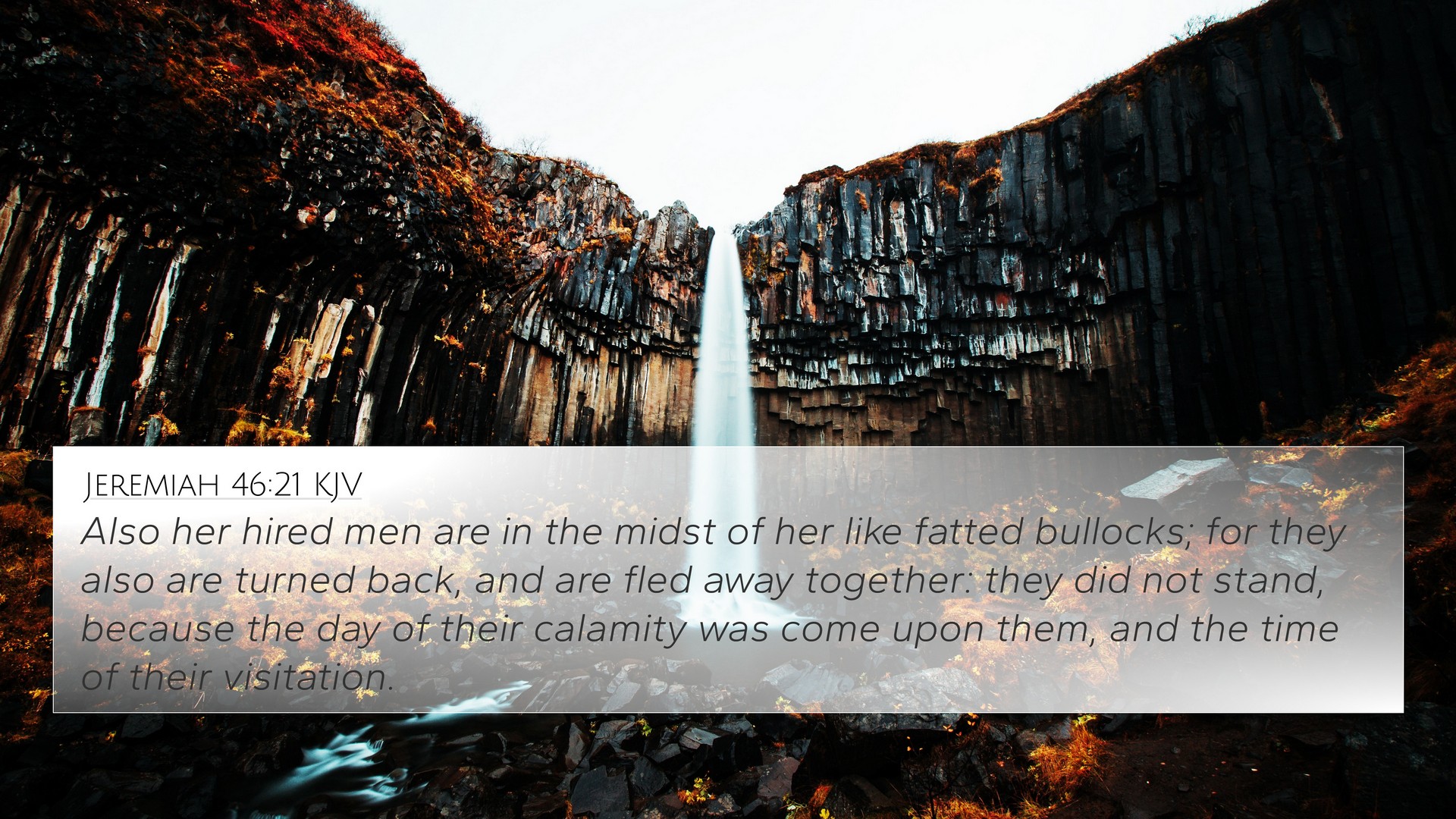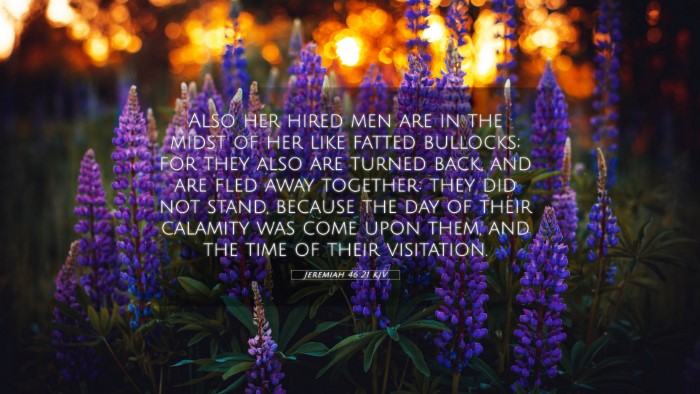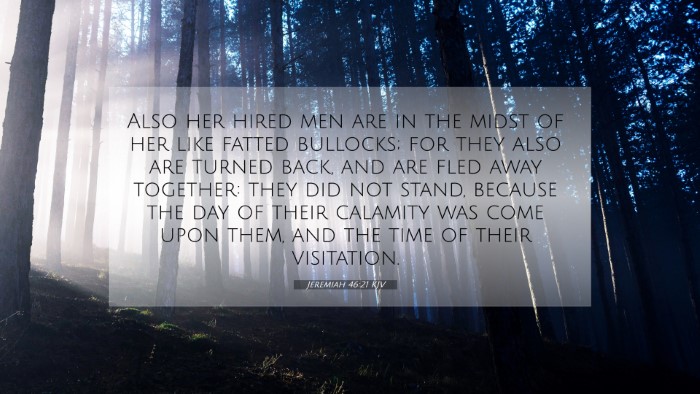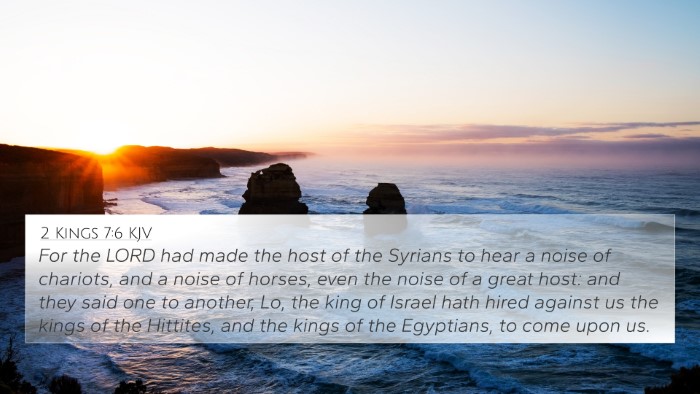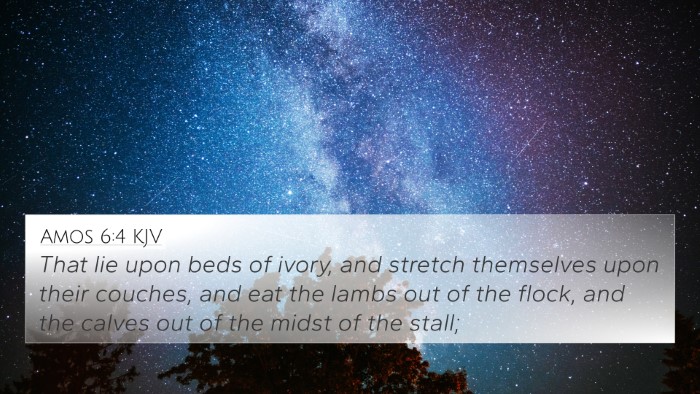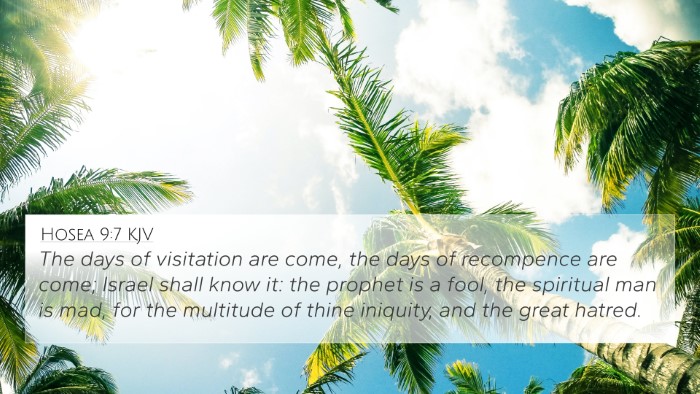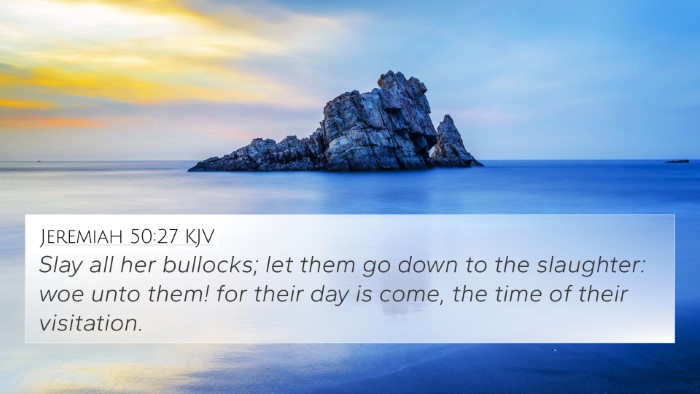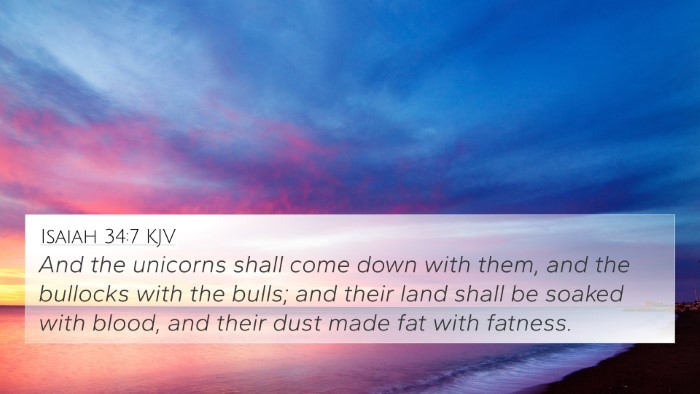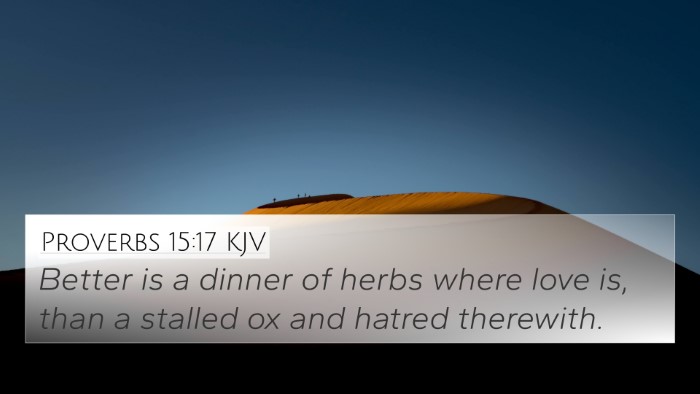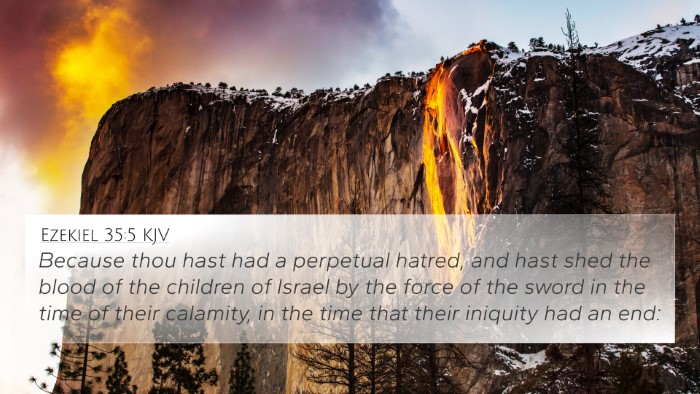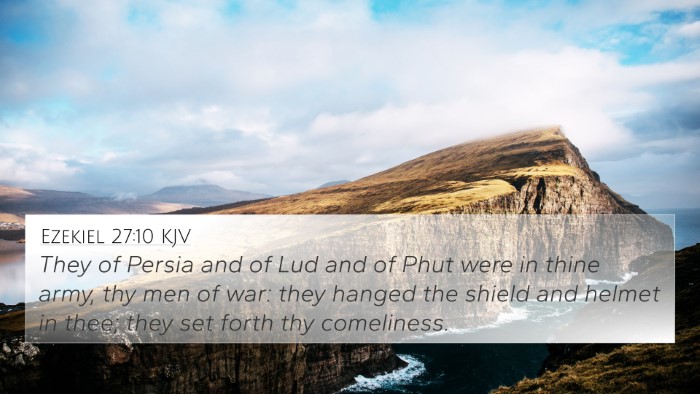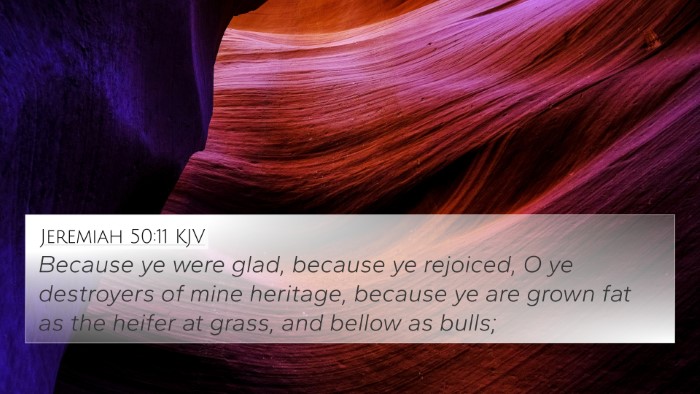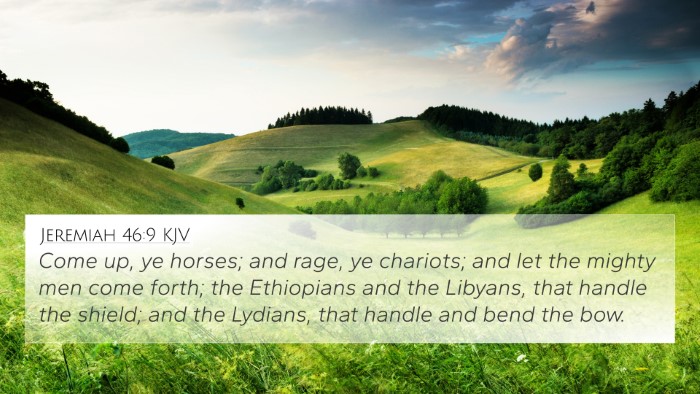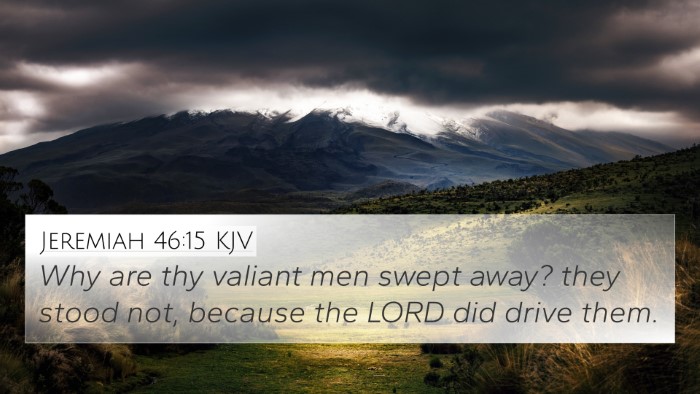Understanding Jeremiah 46:21
The verse Jeremiah 46:21 states, “Also her hired men are in the midst of her like fatted bullocks; for they also are turned back, and are fled away together: they did not stand, because the day of their calamity was come upon them, and the time of their visitation.”
This verse offers profound insights into the Divine judgment upon nations and the inevitable downfall of those who oppose God's will.
Summary of the Verse Meaning
Jeremiah's prophecy serves as a dire warning to the people of Egypt, showcasing the fragility of human strength in the face of God's purpose. The “hired men” or mercenaries symbolize reliance on human resources which ultimately lead to failure when divine judgment is executed.
Insights from Public Domain Commentaries
Drawing from the commentaries of Matthew Henry, Albert Barnes, and Adam Clarke, we can gather a more comprehensive understanding of this verse:
-
Matthew Henry:
Henry notes that the hired men represent a false sense of security. He highlights that in times of judgment, those who thought themselves secure will find themselves in panic and retreat, contrasting their expectation of victory with the grim reality of defeat.
-
Albert Barnes:
Barnes emphasizes the fate of the Egyptian forces, describing their position as akin to that of “fatted bullocks” ready for slaughter. He underscores that their strength falters under God's judgment, resulting in chaos and disarray when facing consequences.
-
Adam Clarke:
Clarke points out the significance of the “time of visitation” indicating a specific moment ordained by God for reckoning. His examination deals with the inevitability of divine retribution upon nations, suggesting that no worldly strength can withstand God's intervention.
Cross-References to Jeremiah 46:21
To further understand Jeremiah 46:21, we can highlight several Bible verses that share thematic connections:
- Isaiah 19:2: Discusses God raising up a spirit of conflict within Egypt, connecting with the theme of divine disarray.
- Ezekiel 30:4: Foretells the sword of Babylon over Egypt, emphasizing divine judgment versus earthly power.
- Jeremiah 50:37: Addresses the downfall of her warriors, akin to the fate of Egypt’s hired men.
- Psalm 46:6: “The nations are in an uproar, the kingdoms totter; he utters his voice, the earth melts," underscoring God's ultimate authority over nations.
- Proverbs 21:30: “No wisdom, no understanding, no counsel can avail against the Lord,” indicating that human efforts collapse before divine power.
- Revelation 18:17: A warning about the fall of Babylon illustrates a similar theme of sudden calamity for nations depending on their own strength.
- Jeremiah 46:15: Questions whether the hired men can save themselves which echoes the futility expressed in Jeremiah 46:21.
Connections between Bible Verses
Understanding Jeremiah 46:21 facilitates deeper exploration into the themes of divine judgment and human failure found throughout Scripture.
The inter-Biblical dialogue can be elaborated upon through comparative Bible verse analysis and linking Bible scriptures that reflect God's sovereign will.
Thematic Bible Verse Connections
Notably, these verses draw a significant parallel between Old Testament warnings and New Testament teachings on judgment:
- Matthew 7:26-27: Jesus speaks of those who hear His words but do not act upon them, leading to their downfall, similar in principle to the Egyptian forces in Jeremiah 46:21.
- Romans 2:6: “He will repay each one according to his works,” reflects the theme of divine justice found in the judgment of nations.
Bible Cross-Reference Tools and Resources
Utilizing tools for Bible cross-referencing such as a Bible concordance or a Bible cross-reference guide can enrich your study and understanding of scripture. These resources allow for a comprehensive Bible cross-reference system that aids in identifying connections between Old and New Testament themes.
Applying Cross-Referencing in Study
A responsible approach to cross-referencing Bible study methods can lead to a deeper comprehension of how similar themes resonate throughout scripture. For instance, identifying connections between the prophetic writings and the teachings of Jesus can reveal the continuity of God’s messages across the Testaments.
Conclusion
Jeremiah 46:21 serves as a poignant reminder of the limitations of human strength against divine authority. By engaging in inter-Biblical dialogue, we can see how various scriptures weave together themes of judgment, calamity, and the call to trust in God. As we examine these connections through a detailed study of the Scriptures, we enhance our understanding of God's overarching narrative conveyed in the Bible.
